Greece finally reaches deal to release €12bn bailout funds
ECB stress tests show country's banks needs €14bn to fill a capital shortfall
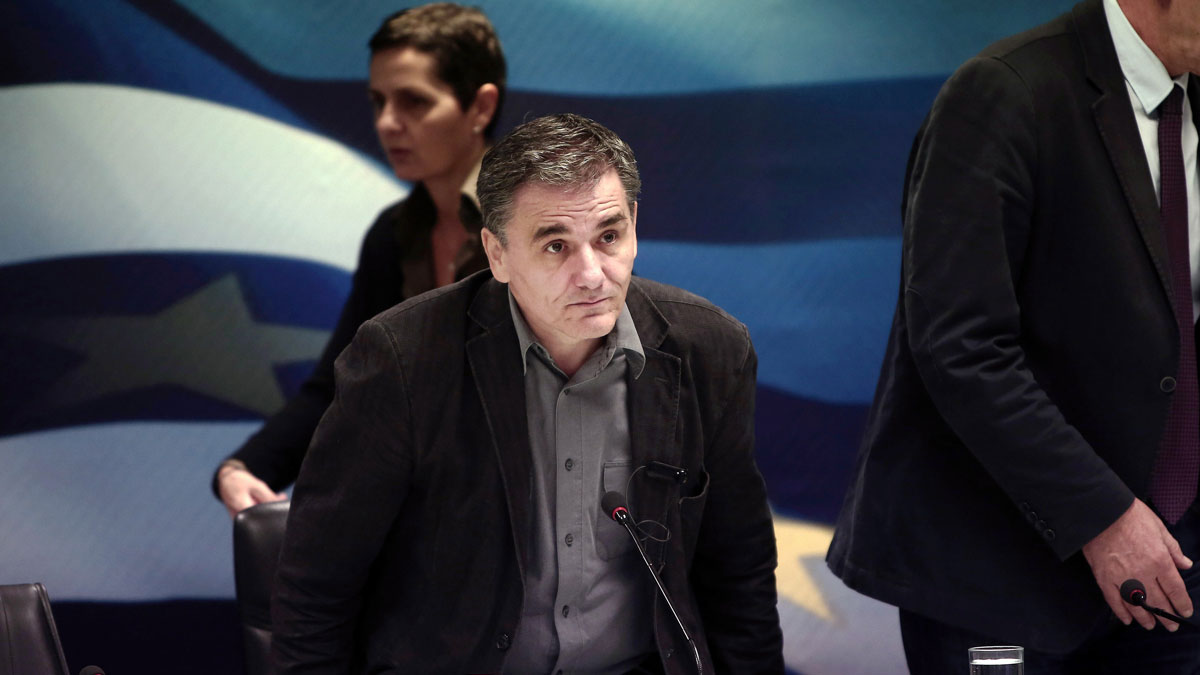
A free daily email with the biggest news stories of the day – and the best features from TheWeek.com
You are now subscribed
Your newsletter sign-up was successful
The latest round of bailout aid looks likely to be delivered to Greece, following an agreement struck between its government and international creditors from across the eurozone on Tuesday night.
The two sides have reached a tentative agreement on the terms surrounding the next tranche of funds, reported by the BBC to be worth €2bn (£1.4bn) in direct loans to the government and a further €10bn to recapitalise the nation's ailing banking sector. European Central Bank stress tests have shown banks may need around €14bn in total to fill a capital shortfall.
The negotiations have been ongoing since an €86bn bailout was agreed upon earlier this year. Under the terms of that arrangement, Greece was required to meet 48 key economic milestones, in order to secure the release of further funds.
The Week
Escape your echo chamber. Get the facts behind the news, plus analysis from multiple perspectives.

Sign up for The Week's Free Newsletters
From our morning news briefing to a weekly Good News Newsletter, get the best of The Week delivered directly to your inbox.
From our morning news briefing to a weekly Good News Newsletter, get the best of The Week delivered directly to your inbox.
But after a snap election in September, an original mid-October deadline for compliance to be confirmed was missed. Wrangling over a controversial reform to allow banks to foreclose on smaller properties in mortgage arrears continued last week and delayed a crucial meeting of finance ministers.
Reuters says the resolution agreed last night will mean Greeks below the official poverty line will be protected in full, while others will be protected for three years if they restructure the debt with their bank.
Greek Finance Minister Euclid Tsakalotos said agreement had been reached "on everything, all 48 prior actions".
However, the terms of the agreement still need to be presented to the Greek parliament on Thursday, which has the potential to spark another round of violent protests, as seen in Athens late last week. The government will hope the deal paves the way to talks to secure a vital restructuring of its huge debt pile.
A free daily email with the biggest news stories of the day – and the best features from TheWeek.com
Greece crisis: deadline extended again after 'marathon' talks
16 November
A sense that recent history is repeating itself on the Greek debt crisis was in the air over the weekend, as a deadline to sign off on the next stage of the country's bailout was delayed again after 'marathon' talks.
The latest round of negotiations lasted for 14 hours and ended at 2am on Sunday morning with the announcement that a crucial meeting of the Eurogroup of finance ministers in the single currency bloc would be delayed from Monday until Tuesday. The meeting had already been delayed from Monday last week, while an agreement on the issues at hand was originally expected in mid-October.
The Guardian says the working group meeting is effectively "a final assessment of the reform progress Athens has made since it signed up to a third bailout in July" and is "crucial" to unlocking the next phase in the €86bn (£61bn) rescue package. Greece is set to receive another €2bn tranche of credit and €10bn to recapitalise its stricken banks.
An impasse remains over new foreclosure laws which were part of the original deal and that would see the minimum value of properties in mortgage arrears that can be seized by banks reduced from €200,000 to €120,000.
Alexis Tsipras's leftist administration believes the reforms will "hit the most vulnerable... at a time of acute social hardship". Reuters notes the government also believes the reforms are politically unpalatable at a time when it is providing food and housing for thousands of asylum-seekers at the vanguard of the migrant crisis in Europe. Forcing many Greeks out of their homes at the same time could boost support for the far-right Golden Dawn party, it fears.
It is seeking to mitigate some of the effects of the policy, according to one Greek official. This could see the introduction of "safety valves to protect households that were meeting their obligations but are unable today to continue their loan payments" and a "cap on the number of foreclosures banks can make annually".
Announcing the latest delay on Sunday Eurogroup head Jeroen Dijsselbloem, the Netherlands' finance minister, sounded an optimistic tone and said "agreement has been reached on many issues". Both sides portrayed the 48-hour delays as a "window of opportunity" to conclude their differences.
Greece needs a clean bill of health on its compliance with the terms of its bailout from the Eurogroup ahead of talks on debt restructuring, which it has long insisted must be a quid pro quo of the economic reforms to which it agreed. Debt relief is also critical to the International Monetary Fund formally participating in the latest rescue.
Greece crisis: deja vu as creditors talks overrun
09 November
With Greece's economy still in tatters, Greek officials will be experiencing a powerful sense of deja vu as the deadline for the second instalment of the country's latest bailout looks set to pass without payment being made and the frantic negotiations on austerity measures continue to roll on.
After being apparently delayed by a snap election that went to the wire in late September, creditors have been locked in discussions with Athens about compliance with the terms of the bailout deal that was struck earlier this summer. But these talks are thought to have reached an impasse on the issue of foreclosure rules for those in mortgage arrears and on the imposition of a hefty tax on private schools.
Creditors had been due to make a €2.15bn (£1.5bn) payment in the second tranche of the €86bn third bailout ahead of a meeting of finance ministers in the single currency bloc today. The Wall Street Journal (WSJ) reports, however, that two officials have confirmed this payment will not happen and that more time is needed to break the deadlock. A new deadline of Wednesday has now been mooted.
At issue is a law change demanded under the new bailout rules to reduce the level at which the government will foreclose on those in mortgage arrears, from a minimum property value of €200,000 to €120,000. The Daily Telegraph says the Greek government is also seeking to avoid imposing a 23 per cent tax on private schools.
Alexis Tsipras's administration is hoping instead to impose "equivalent fiscal measures" in order to trigger the release of the funds. The WSJ says some progress has been made on the issue of private school taxes, but that more time is needed to "sign off on all overhauls". One official branded the delays caused by the election and subsequent disagreements "annoying".
Athens needs the money to continue to meet day-to-day expenses such as salaries, but there is not the same sense of urgency as there was in the summer because a sizeable injection of funds was made in September and there are no major debt repayments due.
The delay is, however, preventing Greece from moving on to discussions around a restructuring of its debt pile to make it more sustainable. This was demanded by Tsipras at previous negotiations and is a precondition of the International Monetary Fund officially joining the bailout.
Greece: will Tsipras election victory spell end of crisis?
21 September
"Greece is no longer the biggest crisis facing the EU," The Guardian declares.
The paper cites the decision to cancel a discussion of Greek debts scheduled in the European Parliament this week, which would have been led by Jeroen Dijsselbloem, leader of the Eurogroup of single currency bloc finance ministers.
After the surprisingly strong victory of Alexis Tsipra's ruling Syriza party in the latest Greek election on Sunday, the Dutch finance chief will instead stay at home and address the migrant crisis.
Syriza won just over 35 per cent of the vote, slightly down on its previous result, and still short of an overall majority, the BBC reports. The party secured 145 out of 300 parliamentary seats, on a record low turnout.
But given the predictions of a neck-and-neck finish with the opposition New Democracy, which would have left the party well short of power, the result was surprisingly decisive. Apart from proving the folly of relying on opinion polls, it will allow Tsipras to revive his previous coalition with the Independent Greeks. It also vindicates his decision to call the snap vote after caving in to creditor demands to agree a third bailout in July.
Markets may be calmer – and Bloomberg View columnist Mark Whitehouse notes that capital is returning to Greece – but analysts say that the hard work remains. Tsipras still has to implement bailout terms that many think is based on unrealistically ambitious targets for reform.
Donald Tusk, president of the European Council and a key figure in the final bailout deal, and Günther Oettinger, European Commissioner for energy, are among those who have written to Tsipras already, stating the importance of sticking to a tough reform agenda. Martin Schulz, head of the European Parliament, has launched a blunt attack on Tsipras for renewing the old coalition rather than seeking new, more centrist partners
For now the reinstated prime minister is "making the right noises", says the Financial Times, talking about "hard work" to achieve a recovery that "won't happen by magic". But others question the credibility of a government led by a man who has stated his distaste for the bailout publicly and who has lost the trust of creditors.
Michael Jacobides, associate professor of strategy and entrepreneurship at the London Business School, said that if "the new government exhibits the same lack of managerial and administrative competence that we saw in the last few months, trouble will soon rise". Early reports that key ministers will be retained despite "issues with operational efficiency" mean "Greece may return to the news headlines sooner than we would wish", he says.
Greece crisis: who will win the latest election?
18 September
Greeks go to the polls on Sunday, in what will be the "third vote in 2015… and the fifth general election in six years," the BBC notes. It is arguably the most important of them all.
With the majority of the €86bn third bailout deal agreed in July still dependent on the implementation of a tough reform agenda, the outcome of the election will determine the country's prospects for recovery.
How it works
Any party which secures more than three per cent of the national vote is allocated a share of 250 of the total of 300 parliamentary seats on a proportional representation basis. The winning party receives the remaining block of 50 seats as a "bonus", the BBC explains.
The Wall Street Journal adds that if "every party that runs makes it into parliament, the party that comes first… would need a 40 per cent share for an outright majority". In reality they will not all make the threshold. Expectations are that around five to six per cent of votes will be cast for parties that do not make the cut, which would lower the threshold for a majority to around 38 per cent.
What are the polls saying?
It's an incredibly tight battle for first place, between former prime minister Alexis Tsipra's left wing Syriza party, which topped the last election with 35 per cent of the vote, and the moderate centre-right New Democracy party. "Of… five polls published on Thursday and Friday, two put Syriza ahead, two had New Democracy ahead, and one was a tie", says Reuters.
An overall average of ten polls by Bloomberg suggests the two parties are neck-and-neck, on around 28 per cent. At this percentage, whichever edges the race will need at least the support of both smaller centrist parties, To Potami and PASOK, which between them are currently on around 10 per cent. Things could yet turn, however, as the third biggest group is the undecideds, who make up 12 per cent of the electorate. Many of these people previously voted for Syriza.
Another unknown is how the far-right Golden Dawn will perform. Amid a migrant crisis which is hitting Greece hard – and particularly the Islands, which have traditionally delivered a block of votes for the left – it is currently the third largest party in the polls and could surprise with an even stronger showing.
What are the consequences?
If the election delivers no outright winner and a coalition proves difficult to form – Syriza, for example, has said it would not work with "establishment parties" – then it could imperil Greece's ability to push through reforms needed to maintain its bailout programme. A review is looming in October and targets are onerous.
EU leaders would like to see "a broad coalition emerging from the election" with a strong mandate, says Reuters. The rewards if the result is suitability decisive could be a package of debt relief to help the country recover and hit growth targets in the years ahead, with European officials "ready to cap the country's debt servicing costs at 15 percent of GDP" each year.
Greece crisis: knife-edge election raises bank fears
16 September
EU authorities "find themselves in a bind" over Greek banks, says the Financial Times.
European creditors agreed not to touch bank deposits as part of the latest bailout deal – and now face a race against time to recapitalise the stricken sector before new capital rules come in across the continent in January that could "wipe out shareholders". And there is the small matter of an uncertain election that could yet "tie authorities' hands".
At issue is the fact that Greek banks were drained of capital in the months leading up to the failure of the last bailout in July, forcing them to close under a draconian regime of capital controls which have still not been fully lifted. The banks need at least €25bn, but creditors have so far "only agreed to spend €10bn" from the first tranche of loans, with the rest "tied to Athens' implementation to the bailout deal".
But this could be complicated by an election this Sunday, with polls currently showing the ruling Syriza party and the opposition New Democracy neck-and-neck. "No single party… is on course to gain the 36 per cent threshold to form a majority government," the Daily Telegraph notes, and "that means a coalition beckons". Syriza has said it will not work with its main rival or other establishment parties meaning there is a good chance no government will be possible for a time.
This threatens Greece's ability to comply with controversial reforms ahead of a review of the agreement, which could determine whether the International Monetary Fund participates and therefore all European countries hold firm. It could also truncate a timetable to resolve the bank crisis and mean "a mad end-of-year scramble", says the FT.
The terms of the bailout deal are already seen as onerous, not least because of fiscal targets that Ashoka Mody, the IMF's former bail-out chief, told the Telegraph would "require a miracle".
Greece crisis: Juncker warns bailout is 'not at any cost'
10 September
Jean-Claude Juncker, president of the European Commission, has said Greek politicians must achieve consensus on complying with the terms of the bailout agreed in July, as fears grow that an inconclusive election will derail reforms.
Delivering his first 'state of the union' address in Brussels since taking up his post earlier this year, Juncker defended the brinkmanship that had characterised talks with Greek officials in the summer. As politicians and officials talked, an existing bailout lapsed and Greece adopted draconian capital controls.
But Juncker said it was "important that [the Greeks] understood that they would not be saved at any cost," the Daily Telegraph reports.
Ahead of a snap general election that is currently too close to call, he warned Greek parties not to stray from the path of reform. "I want the programme to be respected by all future Greek governments," he said. "We are serious and for real. We need respect for arrangements that have been reached."
Reuters says that failure to honour the deal would mean "this time the reaction of the European Union and the eurozone will be different".
Warnings from senior EU officials to Greece seldom go down well, but this time prime minister Alexis Tsipras and his counterparts are busy fighting a tense campaign. Polls put the ruling Syriza party and the main-opposition (and fervently pro-euro) New Democracy neck and neck.
So far, only the far right Golden Dawn and Popular Unity, a party of former Syriza MPs that split ahead of the election in protest at the latest bailout, are likely to stand against the deal. But forming a government to enact the reforms could be difficult: New Democracy is keen to build a grand coalition, but Tsipras has said he will not work with "establishment" parties.
Speaking to EU Observer, one EU official said that the electoral uncertainty means "there can be no discussion on how implementation [of the bailout programme] is going" when eurozone finance ministers meet in Luxembourg on Saturday. But he indicated that the first review of the programme should start in October, and said creditors were prepared to adapt plans "continuously" as long as there is broad support for the agreement."
Greece crisis: is Tsipras facing defeat in snap poll?
8 September
The Greek prime minister's decision to seek a new electoral mandate just hours after securing a hard-fought international bailout appears to have backfired, with reports suggesting that he could lose his grip on power.
Alexis Tsipras's Syriza party, which has overseen bitter battles with creditors and near economic collapse under capital controls, won 36 per cent of the vote at the last election seven months ago. It is now barely maintaining its slim lead, and in some polls, it is behind the main opposition party, the centre-right, pro-euro New Democracy.
[[{"type":"media","view_mode":"content_original","fid":"84307","attributes":{"class":"media-image"}}]]
The Daily Telegraph reports that two surveys have put New Democracy ahead in the past week, with between 24 and 25 per cent of the vote. The lead is marginal, The Guardian notes, and once other polls are taken into account the two parties are essentially "neck and neck".
It's a major reversal for Syriza and its charismatic leader, who has seen his own approval ratings plummet after caving in to new austerity demands that had been rejected by voters in a referendum.
The "spectre of a fractured result" has also raised fears that Greece will be "plunged into the sort of political uncertainty that could once again derail it economically", says the Guardian. The votes will be counted weeks before a significant review of the country's economic programme, which could swing the IMF's decision on whether to participate in the bailout. That, in turn, could be a dealbreaker for some European creditors.
With polls showing parity and 10 per cent of voters at least saying they are undecided, the political climate has never been more uncertain. "Aristides Hatzis, a professor of law and economics and prominent political commentator, said the vote is "going to be a thriller", adding that "when the day comes no result can be excluded."
Greece crisis: poll prompt fears of second election
02 September
Opinion polls ahead of the snap election in Greece later this month are pointing to a 'messy' result, which some fear could require a second election to resolve.
One survey published today and cited by The Guardian put prime minister Alexis Tsipras's Syriza party in the lead, but at 23 per cent it would have shed around 10 per cent of its vote since January. This would leave Tsipras struggling even to form a workable coalition, not least because he has ruled out working with "old establishment" parties including the main opposition New Democracy party.
The poll put less than one per cent between the two, a figure supported by other polls published in recent days which have shown a narrowing gap. Having led by around 15 per cent before the debt crisis came to a head over the summer, the Wall Street Journal says many forecasts now put Syriza's lead somewhere between one per cent and three per cent.
For Tsipras, the news is particularly disappointing, as while he may still be the most popular leader, his approval ratings have plunged from around 70 per cent to just 30 per cent. The election "was not meant to be like this", the Guardian notes, but instead of an "easy cruise to victory" he faces a loss of support after misreading the "reaction of young people" to his volte face on a reforms-for-bailout cash deal with creditors.
Some believe the potential for lingering political instability could have wider consequences and derail the bailout altogether. The need to hold a second election "would be absolutely disastrous for the Greek economy" one senior EU diplomat said. "The EU made a decision to keep Greece in the eurozone in July but its future remains precarious… Political stability, at the very least, is vital."
One bright spot for those worried about a review of its reform programme in October, on which debt relief and crucial International Monetary Fund support depends, is that the respected lead negotiator in the final rounds of bailout talks, George Chouliarakis, was appointed finance minister in the caretaker administration last week and has promised to keep the country on track to meet its pledges.
He told Reuters his main target was "to make sure we won't lose valuable time".
Greece crisis: election may add to instability
28 August
Greeks will head to the polls next month, the sixth time in eight years they have been asked to vote for a new government. The result will determine the future of its bailout arrangements with international creditors – and some predict that the resulting political instability will fatally undermining the deal.
On Thursday, the country's top supreme court judge, Vassiliki Thanou, was named interim prime minister and will lead the country until the 20 September vote. The Guardian notes that she is the first woman ever to hold the office.
Opinion polling suggests that the ruling Syriza party, led by Alexis Tsipras, will again emerge as the largest force in parliament. But with 23 per cent of the vote it will have lost around a third of its support and could be forced to build a broader alliance if it is to retain power, Reuters says
The outlook after the poll could be highly uncertain. The second-placed New Democracy party, polling 19.5 per cent, has been a vocal critic of Tsipras and his approach to the bailout negotiations – and in any case Tsipras has ruled out a coalition with the three main pro-euro opposition parties, including socialist Pasok and centrist To Potami, as well as centre-right New Democracy.
[[{"type":"media","view_mode":"content_original","fid":"84116","attributes":{"class":"media-image"}}]]
Europe hopes the polls with give a new government, possibly with a more accommodating leader, a stronger mandate to follow through with pledges made as part of the recent bailout. But others are warning of a messy result which could make it difficult to push through reforms before October's compliance review. That will determine whether the IMF takes part in the bailout, which will in turn determine how much support the process receives in Berlin and other European capitals.
Dimitri Sotiropoulos, associate professor at the University of Athens, tells the BBC that calling an election was misguided. Tsipras has "diminished the chances for a quick economic recovery," he says. "Economic instability has been compounded by political instability."
Greece crisis: analysts predict 'Grexit' after Tsipras resigns
21 August
Greece faces fresh political turmoil today after the resignation of Alexis Tsipras, the country's embattled prime minister. Just hours after a new bailout was agreed and a first tranche of funds transferred, the deal – and Greece's long-term membership of the euro – has been thrown into renewed doubt.
City AM says the move places the whole bailout "into question". If opposition parties cannot muster enough support to take over immediately a snap poll will be held within 30 days, meaning no government will have a mandate to push through controversial economic reforms until the end of September. In October a first review of compliance with the terms of the agreement, on which debt relief and International Monetary Fund participation will depend, is due to take place.
Jennifer McKeown, a senior European economist at Capital Economic, said the resignation "increases the risk that Greece will fail to pass the first review… and confirms that the threat of Grexit has far from evaporated." Simon French, chief economist at Panmure Gordon, said he is "certain" of an eventual Grexit and warned that if the new party established by Syriza's ultra-left rebels polls well, borrowing costs "will go even higher".
The Greek prime minister had been expected to call a parliamentary confidence vote after he failed to secure the minimum of 120 government MP votes when the bailout was approved last week. Instead, the Financial Times says, he has opted to resign and "asked the Greek people to pass judgment".
Reuters notes Tsipras cannot call elections himself. Under the Greek constitution "if a government resigns within a year of the last election, the country's president must hand an exploratory mandate to the leaders of the opposition to try to form a government, starting with the largest party". This means the centre-right New Democracy party will be given the chance to form a government, but there is little chance of enough support being mustered and most still expect the country to go to the polls for the sixth time in eight years.
The result could be messy. The BBC reports that around 25 hard-left rebels within Tsipras's Syriza Party, the most popular in the polls, have broken away and formed a new 'Popular Unity' party. This could reduce a mandate for the popular prime minister even if he finishes top in new polls.
Greece crisis: Merkel faces down bailout dissenters
19 August
A fresh bailout for Greece will finally be approved today after Angela Merkel faced down rebels in a test of her leadership.
Germany's Bundestag met this morning to debate the third refinancing of its heavily-indebted eurozone partner in one of the final two votes required to release funds, with the Dutch parliament also holding an emergency session to discuss the deal.
Support from the minority coalition party and leftist opposition were expected to ensure the deal received assent in Berlin – and so it proved with the package passing by 454 votes to 113, with 16 abstentions. But the real question was how large the rebellion would be from within Angela Merkel's own conservative Christian Democratic Union (CDU) and its sister Christian Social Union party, amid anger in particular over the lack of guarantee of International Monetary Fund (IMF) support.
In the event, The Guardian reports, 63 German conservatives voted against the Greek bailout deal and three abstained. This means the number of dissenters was no larger than at the vote last month on opening up negotiations on a new bailout, when 60 voted no and five abstained. As many as 120 had been expected to vote against from the government benches in what would have been Merkel's biggest ever mutiny.
Without the IMF the full burden of the €86bn in new loans will fall on European countries through the European Stability Mechanism, with German taxpayers on the hook for the largest contribution. MPs were also angry that they did not get the full draft of the deal they will be voting on until last night.
Others had suggested the strong, if belated, support of truculent finance minister Wolfgang Schaeuble could quell the uprising. Bloomberg says a "straw vote late Tuesday indicated 56 members of Merkel’s parliamentary caucus would oppose… and four would abstain", indicating the number of rebels would be just the same as in July. It also adds that for "all [the] dissent in their party, bloc approval ratings for Schaeuble and Merkel are among the highest for German politicians" at more than two-thirds.
One MP speaking to the Guardian agreed. Klaus-Peter Willsch, one of the German CDU rebels, told the paper: "I would vote ‘no’ to the bailout, but ‘yes’ to Merkel, every time."
Greece crisis: how the bailout will be approved
18 August
With just two days to go before Greece is due to repay €3.2bn to the European Central Bank, the country is edging closer to securing a third bailout deal.
After talks that began when a Syriza-led coalition took office eight months ago, and two months on from a default of sorts on repayments to the International Monetary Fund, parliaments across Europe are voting today and tomorrow to approve €86bn of fresh loans.
Estonia's parliament will begin the process, convening to debate and vote on the plans from 2pm today. Spain doesn't have to hold a formal ballot of lawmakers on the plans but is doing so all the same, Bloomberg reports, with a session beginning at 5pm. Austria's parliamentary subcommittee will also meet today. All are expected to approve the accord.
Tomorrow the Dutch parliament meets at noon for an "extraordinary session", before what is seen as the main event, in Germany, where reports suggest that Chancellor Angela Merkel is facing the largest rebellion within her own ranks in her ten-year term in office. She will face tough questions about the role of the IMF in the bailout, but opponents are unlikely to derail the deal.
To smooth the way, the country's finance minister Wolfgang Schauble, previously reluctant to support the bailout, has told Reuters he has "no qualms about urging fellow lawmakers to approve" the latest injection of funds. He said he was confident that the IMF would participate in the bailout, thereby "guaranteeing rigorous implementation of budgetary and reform targets".
The IMF has recently said it would take part only if the deal included debt relief for Greece, and though Schauble said existing loan terms were "very generous", he insisted that further reassurance would be offered to the fund.
Lawmakers in Belgium, Cyprus, Ireland, Italy, Malta, Portugal, Slovakia, Slovenia, Luxembourg and Lithuania do not need to vote on the plan, while those in France, Finland and Latvia have already given their assent.
Once the national parliaments have backed the package, the European Stability Mechanism's board of governors, made up of national finance ministers, will hold a conference call to "set in motion the disbursement to Greece". That should come in time to prevent Greece from defaulting on the payment due to the ECB on Thursday.
Greece crisis: focus shifts to Germany after bailout approved
17 August
Another hurdle has been passed in the ongoing saga over a third bailout in five years for Greece, with the focus now shifting to the Bundestag in Berlin after eurozone finance ministers signed off on the deal.
A meeting of the so-called Eurogroup on Friday approved the terms of an €86bn bailout, according to the Guardian, after the Greek parliament "grudgingly approved the agreement at the end of a marathon debate" and Germany, the most hardline of international creditors, "backed down on its opposition".It involves Greece committing to fiscal targets, culminating in a 3.5 per cent budget surplus before debt repayments of 3.5 per cent by 2017, and no fewer than 40 'prior actions', or economic reforms. In return, Greece will receive a first tranche of €26bn in loans to begin recapitalising its banks and meet a major debt repayment due this week to the European Central Bank.But the deal also has to be approved in various eurozone parliaments, including Germany's where the broadcaster Deutsche Welle reports that chancellor Angela Merkel is likely to face "increased resistance". While there is "little chance that the Bundestag will reject the new bailout deal, the vote is being seen as a leadership test for Merkel", who will probably face a large rebellion from within her own ranks.German lawmakers will be unhappy that the International Monetary Fund (IMF) is not guaranteeing involvement, which Merkel had said was a prerequisite of any new bailout. The IMF has said it will decide in October if it will take part and that its decision will depend in large part on concessions offered to reduce the burden of Greek debt, which the Wall Street Journal notes is set to peak at "more than 200% of GDP in the coming years".
A further complication is political upheaval in Greece. This may well result in a new government being in place by the time the IMF makes its mind up. Reuters says ministers in Alexis Tsipras's coalition administration have hinted a confidence vote will take place after fewer than 120 of MPs on government benches supported the latest deal, with failure to secure a majority leading to snap elections at which a leftist faction of the ruling Syriza party could splinter.
-
 Political cartoons for February 16
Political cartoons for February 16Cartoons Monday’s political cartoons include President's Day, a valentine from the Epstein files, and more
-
 Regent Hong Kong: a tranquil haven with a prime waterfront spot
Regent Hong Kong: a tranquil haven with a prime waterfront spotThe Week Recommends The trendy hotel recently underwent an extensive two-year revamp
-
 The problem with diagnosing profound autism
The problem with diagnosing profound autismThe Explainer Experts are reconsidering the idea of autism as a spectrum, which could impact diagnoses and policy making for the condition
-
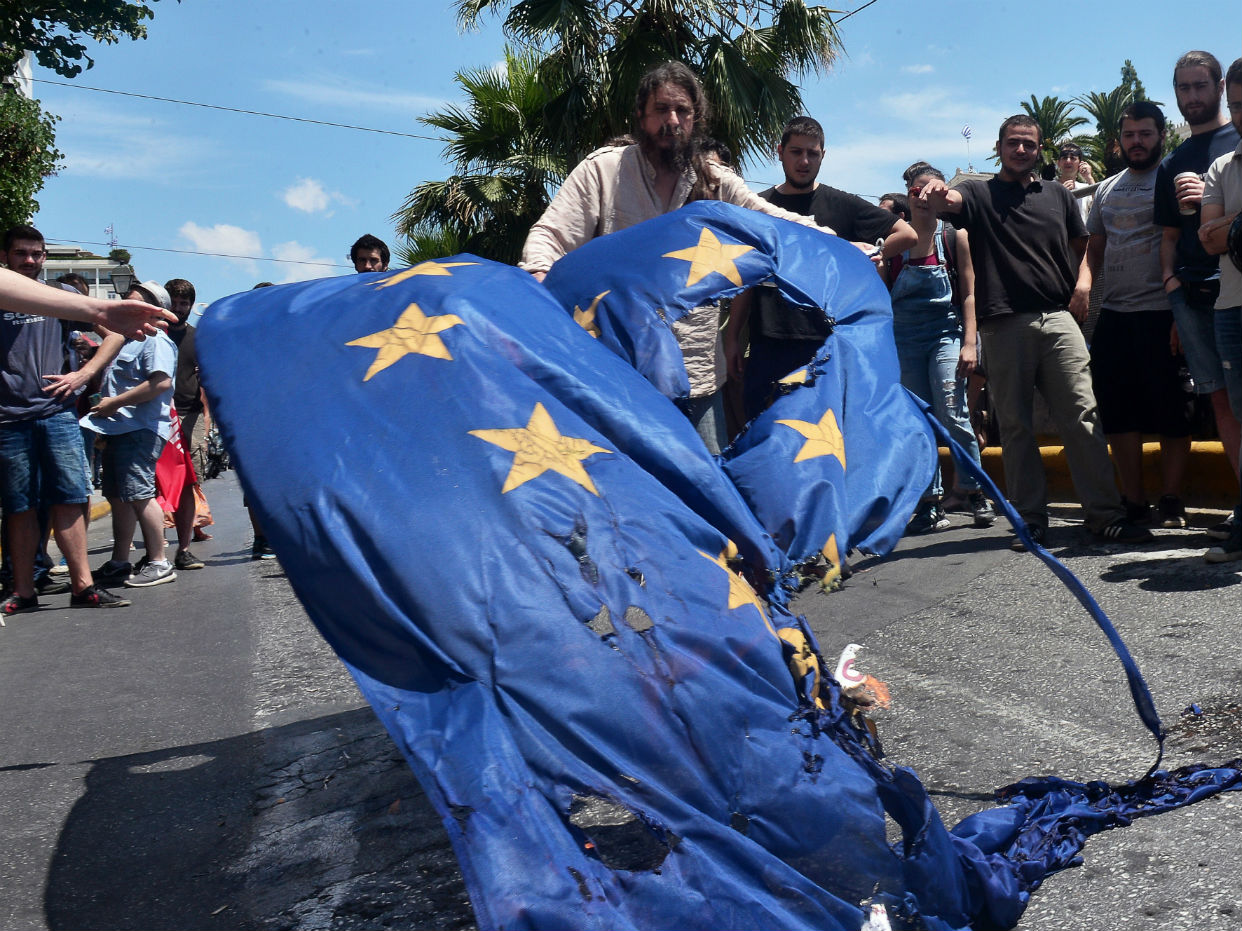 Majority of Greeks regret joining euro
Majority of Greeks regret joining euroSpeed Read Fifty-three per cent say it was 'wrong' to join single currency - and feeling is strongest among the young
-
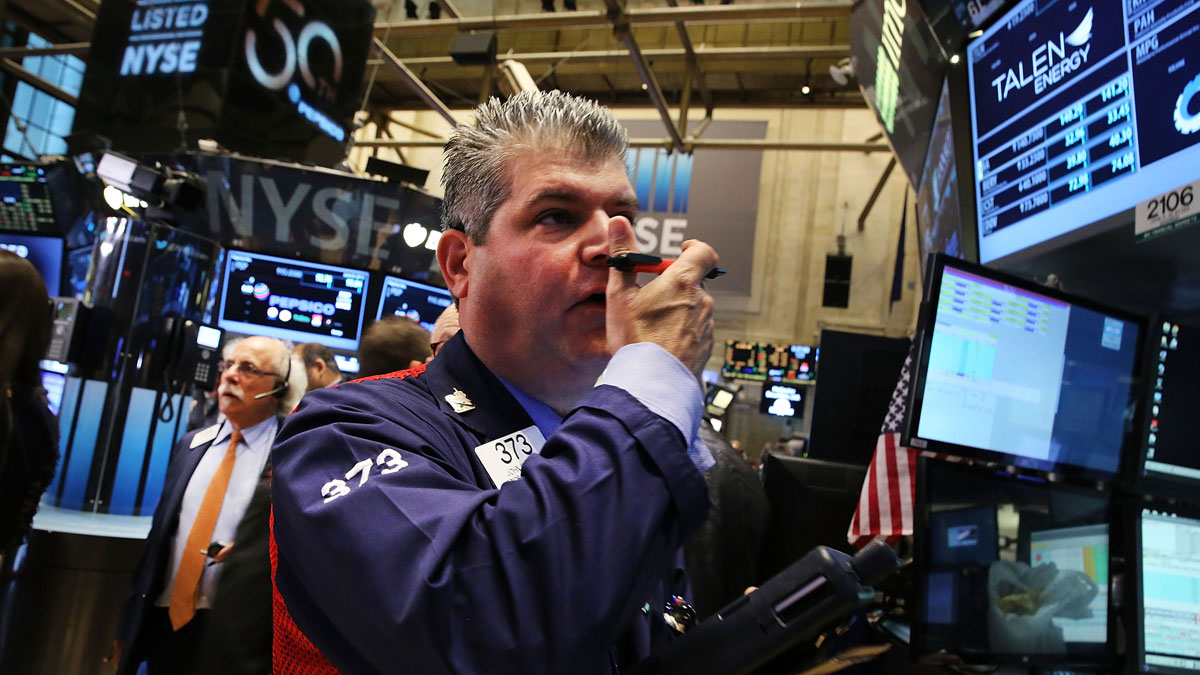 US stock markets fall after Greek vote
US stock markets fall after Greek voteSpeed Read Wall Street slide mirrors falls in Asia and Europe as global 'Grexit' jitters take hold
-
 'Leap' second: how much was it worth?
'Leap' second: how much was it worth?In Depth During yesterday's extra second, Apple earned about twice the average UK weekly salary
-
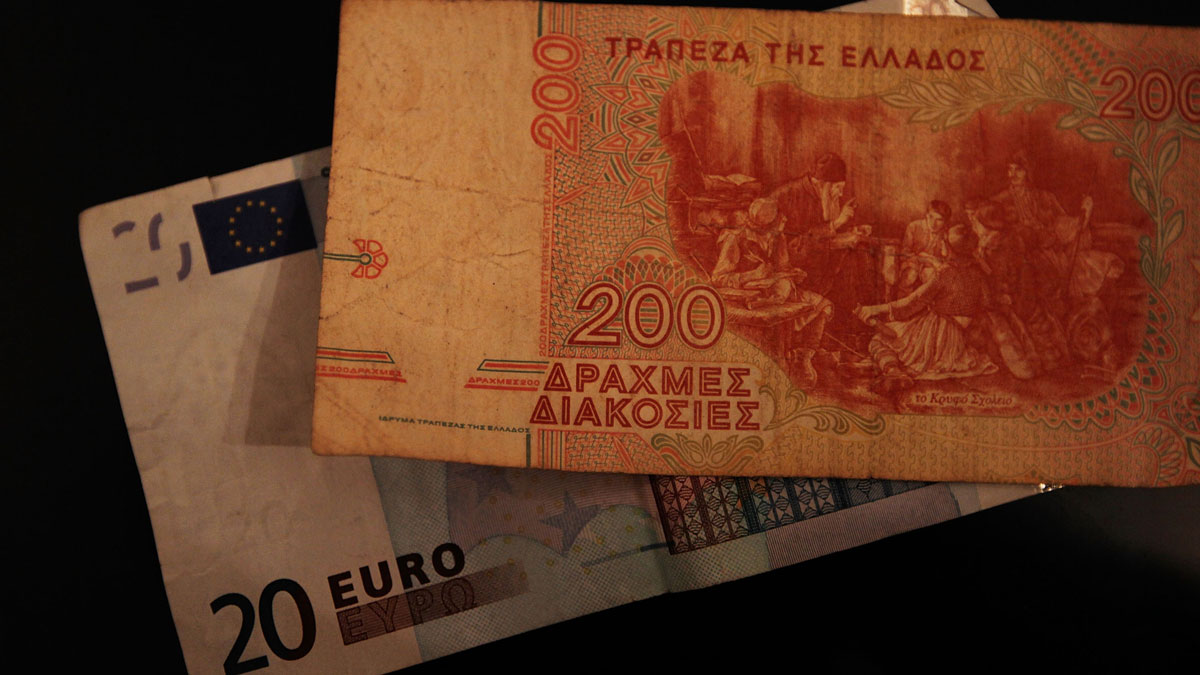 Greek crisis: a case of history repeating itself
Greek crisis: a case of history repeating itselfIn Depth If Greece leaves the euro, it won't be the first monetary exit for the Hellenic Republic
-
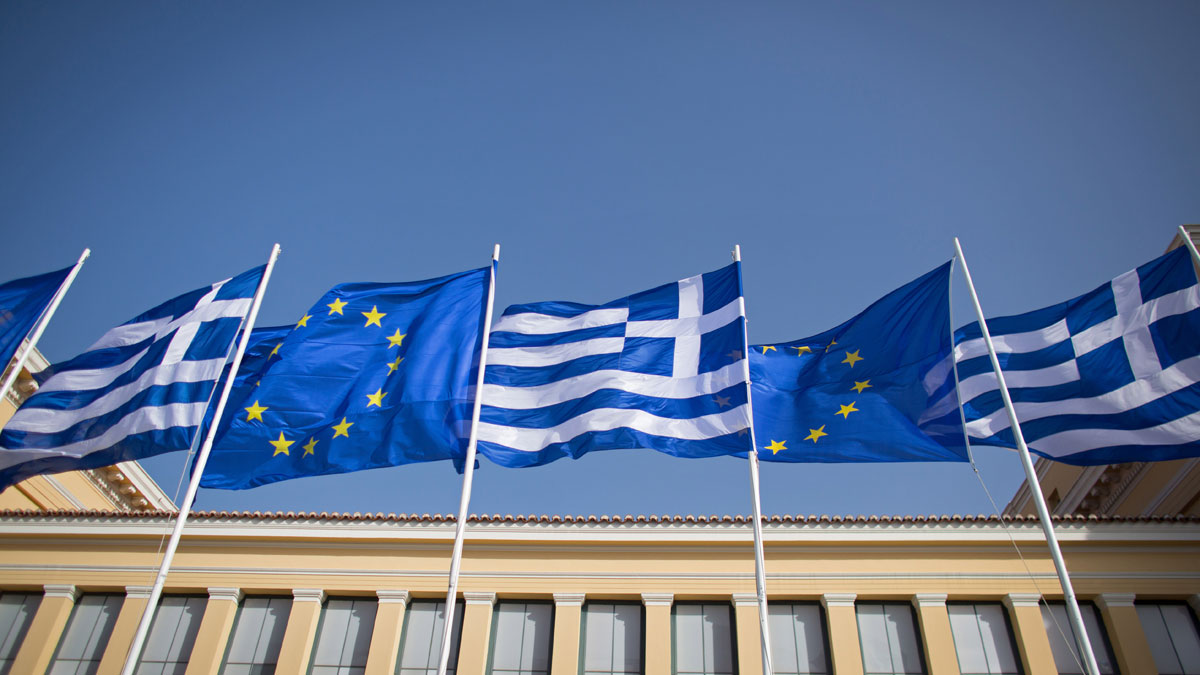 Greece crisis: has bailout ended threat of Grexit?
Greece crisis: has bailout ended threat of Grexit?In Depth Economic targets remain ambitious and the political situation is far from settled